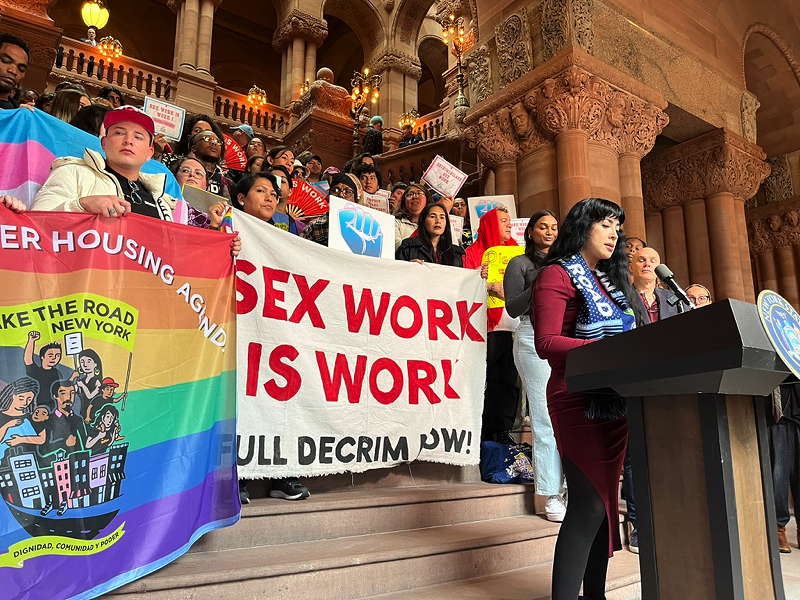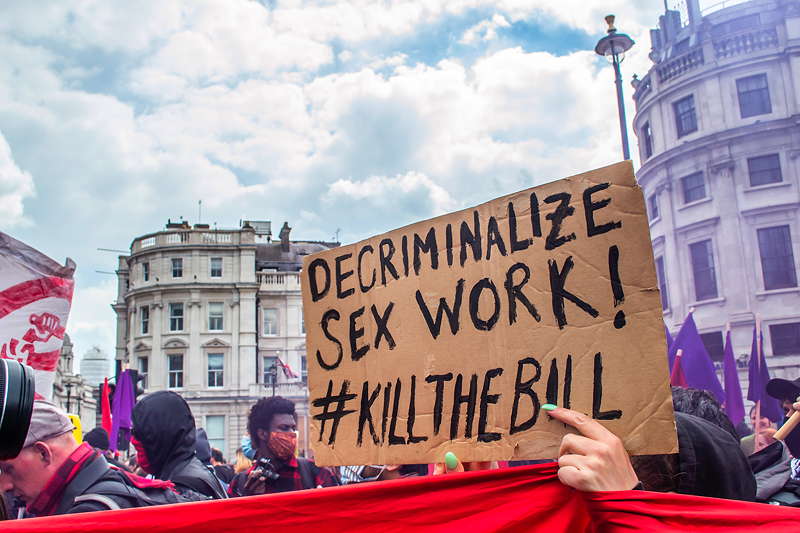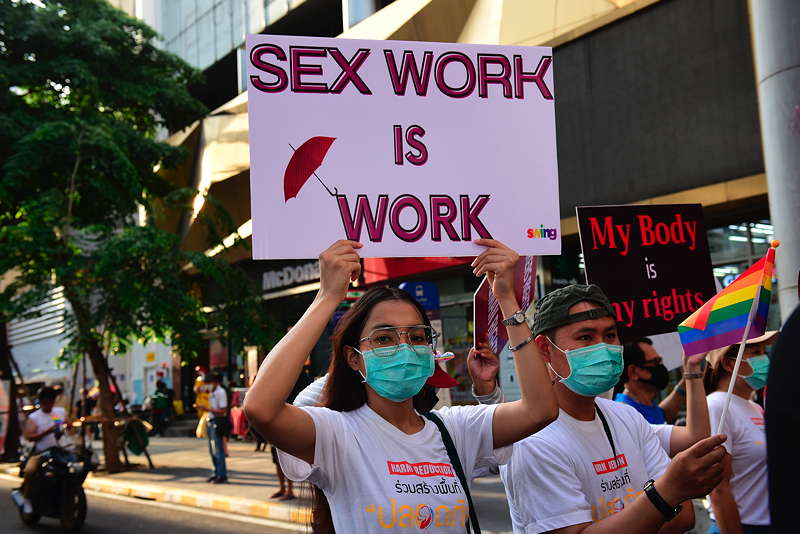May 1, 2024
The legislative session has come to a close or is nearing its end in state houses across the country. This year, Massachusetts, New York, Hawaii, Rhode Island, and Vermont considered bills to decriminalize consensual adult sex work. A number of states also considered or passed legislation that would improve the health, safety, and human rights of sex workers and their communities. Unfortunately, legislators around the country have also considered bills that would further criminalize sex workers and infringe upon their human rights. New York and Massachusetts considered Entrapment Model legislation and California, South Carolina, Wisconsin and Tennessee legislators proposed measures that would further criminalize sex workers and their clients this session.
In Massachusetts this year, two competing bills were up for consideration. H.1757, an Act to Promote the Health and Safety of People in the Sex Trade, would keep sex workers safe by fully decriminalizing prostitution and offering expungement for certain prostitution and marijuana-related convictions. In direct opposition to H.1757, H.1597/S.983 proposed by Mary Keefe, Tricia Farley-Bouvier and Cindy Friedman, an Act to Strengthen Justice and Support for Sex Trade Survivors, would further endanger sex workers by enacting Entrapment Model legislation. A third sex work-related bill, S.1046/H.175, an act to prevent human trafficking and improve the health and safety of sex workers was also introduced. The bill would have created a Human Trafficking Prevention Project; created a committee to study current policies impacting sex workers; and repealed the crime of “common night-walking,” an archaic law that disproportionately targets low income women of color. The bill would have also established immunity protections for sex workers and trafficked people so that they could safely report crimes and seek medical care without the fear that they themselves would be criminalized and subjected to arrest. All three bills recently died in committee.
Similar bills were up for debate in New York. A.8605/S.4396, sponsored by Phara Souffrant Forrest and Julia Salazar, is an act to amend the penal law in relation to decriminalizing sex work. This legislation would remove all criminal penalties for those engaged in consensual adult sex work, increasing the health and safety of sex workers and the public at large. In opposition to this legislation, A.3386/S.1352, sponsored by Pamela Hunter and Liz Krueger, would remove criminal penalties for sex workers but not their clients, effectively enforcing the stigma associated with sex work and further endangering sex workers. At this time, neither bill is expected to pass before the session ends.
In the wake of the arrest of Rex A. Heuermann in the Gilgo Beach serial murders this past year, important legislation is finally being seriously considered in New York this session. A.7471/S.1966, an act relating to individuals engaged in prostitution who are victims of or witnesses to a crime, encourages victims of human trafficking and sex workers who experience or witness crime to report their experience and seek help without fear of being prosecuted for prostitution when they report the crime to a law enforcement agency, seek or receive health care services, or aid in the investigation of the crime. The concept is similar to the “Good Samaritan” law New York enacted in 2011 which protects people who seek help for someone suffering a drug overdose. People involved in commercial sexual activity, whether by choice or by force, fraud, or coercion, who are victimized are hesitant to report crimes committed against them because they fear their own arrest. When the perpetrators of these crimes are not discovered by law enforcement, they are able to continue their acts of violence and exploitation with impunity. This bill does not prevent the prosecution of prostitution crimes where there is no reporting of a crime. If such laws were in place before the Gilgo Beach murders, an arrest would have been made much sooner and lives would have been saved. Advocates remain hopeful the bill will pass before the session closes on June 6.
Washington state passed a landmark bill this session. SB.6105 proposed by Rebecca Saldaña, known as the Stripper’s Bill of Rights, was signed into law by Governor Jay Inslee in March. This victory is attributed to the incredible work of the dancer-led organization Strippers are Workers, who fought tirelessly to ensure the health and safety of dancers and patrons in Washington strip clubs. Washington now joins Illinois as the only two states in the U.S. that have enacted protections for workers in adult entertainment.
Virginia became the newest state to enact legislation against police sexual violence after passing SB.394 this year. SB.394 relates to carnal knowledge and sexual battery of persons detained or arrested by a law-enforcement officer. This legislation follows in the wake of Vermont’s enactment of the country’s most comprehensive law against police sexual violence last year. Police sexual violence is a term that encompasses interactions in which a law-enforcement officer (sometimes referred to as a peace officer) engages in sexual contact with someone they have encountered in the line of duty. Law-enforcement officers are inherently in a position of authority over civilians, and this authority can be wielded to coerce unwanted sexual contact. Police sexual violence is the second-most prevalent form of police violence behind excessive force.
Rhode Island is currently considering a number of bills that would protect sex worker’s rights. H.7165 proposed by Edith Ajello, would provide immunity from arrest and prosecution for prostitution under certain circumstances. Immunity Bills, as stated earlier, are critical to the health and safety of sex workers. Another important piece of legislation being considered in Rhode Island is H.7452/S.2225, an act that would repeal provisions that assess costs for women in the community corrections program for women and offenders and would repeal the crime of loitering for prostitution. This bill removes extra fines that are assessed only to people convicted of commercial sexual activity. Those extra fines create a purposeless financial burden for those facing commercial sexual activity charges. The bill also repeals Rhode Island’s loitering for prostitution law. Loitering for prostitution laws have been repealed in New York, California, and Seattle, Washington, citing evidence that these statutes are disproportionately enforced against communities of color and transgender people.
Visit https://decriminalizesex.work/advocacy/take-action-your-state/ to send letters in support of of sex workers’ rights and safety.

DSW Newsletter #54 (May 2024)
Decriminalization Advocates Fill NY Capitol

MA City Affirms Sex Worker Rights

2024 Legislative Round Up

Queensland, Australia, Decriminalizes Sex Work

